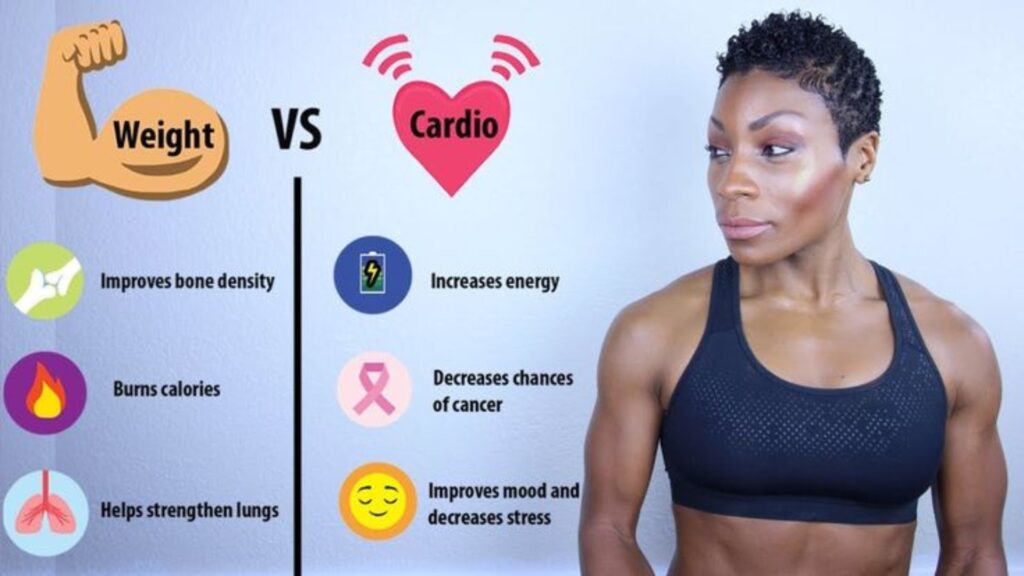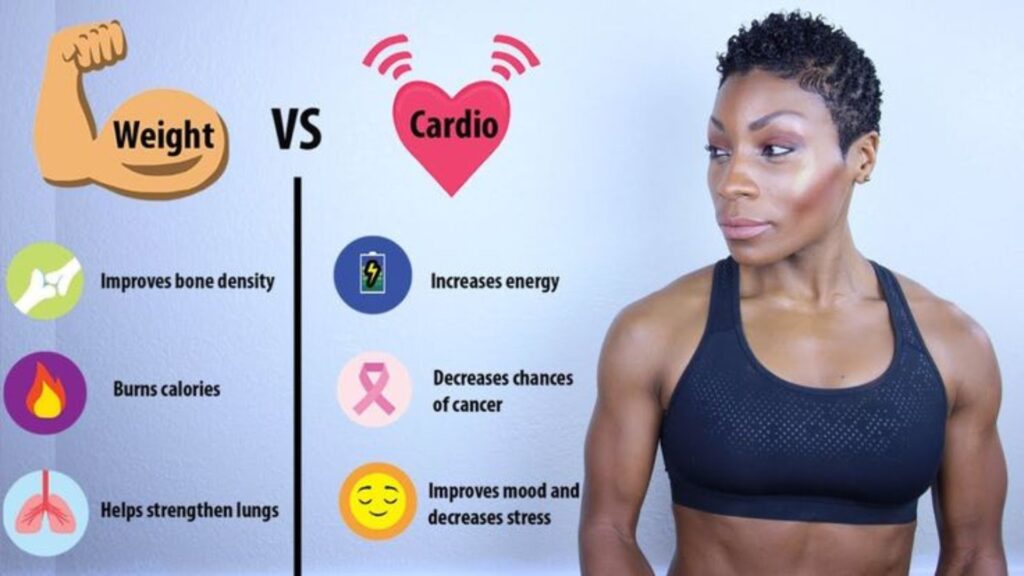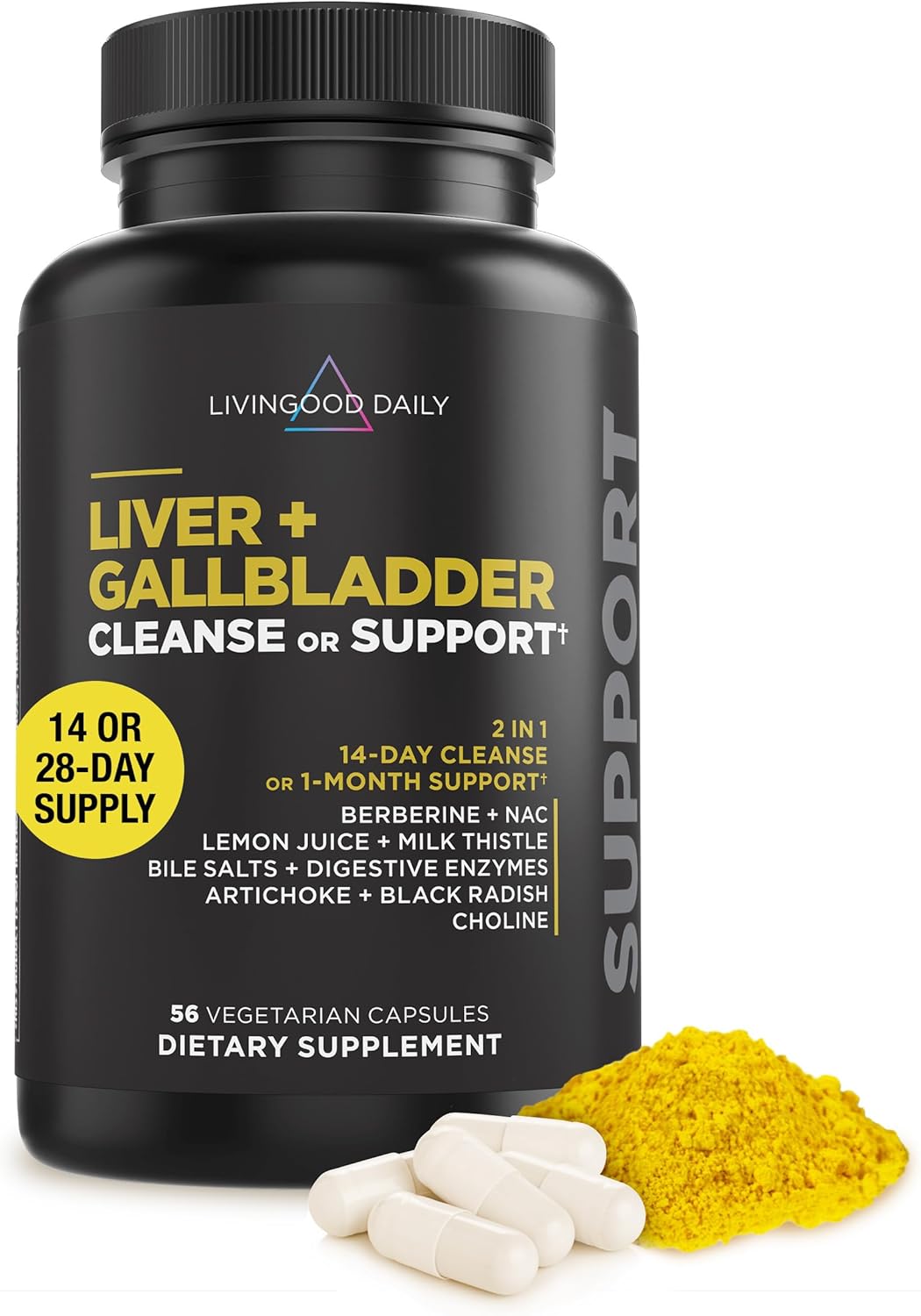Understanding the benefits of cardio and strength training is essential for anyone aiming to improve their fitness and overall well-being. While cardio exercises such as running and swimming enhance heart and lung function, strength training supports muscle growth, joint health, and metabolism. Additionally, both types of exercise reduce stress and improve mood. In this article, we’ll explore how each workout contributes to your physical and mental health, why combining them is ideal, and which supplements can help maximize your results.
Benefits of Cardiovascular Exercise

Cardiovascular or aerobic exercise includes activities like running, swimming, cycling, and dancing. These exercises increase heart rate and breathing, improving the efficiency of the heart and lungs. Some of the main benefits include:
- Heart Health Improvement: Aerobic activity enhances circulation, reduces blood pressure and cholesterol, controls weight, and lowers the risk of type 2 diabetes.
(Sources: Mayo Clinic, Modern Heart and Vascular, NHLBI, NIH) - Weight Loss: Cardio helps burn a significant number of calories, speeds up metabolism, and improves BMI. Therefore, doing cardio regularly contributes to maintaining a healthy weight.
(Source: Bodytone) - Stress Reduction and Mood Boosting: Physical exercise, in general, helps relieve stress. Moreover, intense cardio or weight training provides mental relief and increases feel-good endorphins.
(Source: Psicología y Mente) - Increased Endurance and Energy: Regular exercise improves muscle strength and stamina. In fact, it sends oxygen and nutrients to tissues and helps the cardiovascular system work more efficiently.
(Source: Mayo Clinic) - Better Sleep Quality: Strength training promotes better sleep by stimulating the release of serotonin, which increases melatonin levels—essential for regulating natural sleep-wake cycles.
(Source: Psicología y Mente)
Benefits of Strength Training

Strength training includes using weights, resistance bands, or your own body weight. Unlike cardio, it provides benefits that go beyond just building muscle:
- Muscle Growth and Metabolism Boost: Lifting weights helps reduce fat, increases strength and muscle tone, and enhances bone density.
(Sources: Mayo Clinic, bupasalud.com.pa) - Bone and Joint Strengthening: Strength training supports joint health by developing surrounding muscles, providing support and stability. As a result, it can help prevent injuries and alleviate pain from conditions like arthritis.
(Source: La Bolsa del Corredor) - Improved Posture and Balance: Weight training enhances posture and balance, especially as we age, reducing the risk of falls and injuries.
- Reduced Risk of Chronic Diseases: Regular strength training may lower the risk of chronic diseases like type 2 diabetes, heart disease, and even some cancers.
- Mental Health Support: Like cardio, weight training can relieve anxiety and depression symptoms, thus improving overall well-being.
Cardio vs. Weights: What’s Better for You?

Ultimately, the choice between cardio and weights depends on your personal goals:
- For Weight Loss: Cardio burns more calories per session. However, strength training builds muscle mass, which boosts your resting metabolism. Ideally, combining both is most effective for weight loss.
- For Muscle Gain: If your goal is to build muscle, strength training should be your main focus.
- For Heart Health: Cardio is essential for improving heart strength and circulation.
- For Overall Wellness and Longevity: A combination of both types of exercise delivers comprehensive benefits for both body and mind.
Combining Cardio and Weights in a Balanced Routine

To get the most benefits, try integrating both cardio and strength training into your weekly workout plan. Here’s an example of how to structure it:
- Cardio Days: Do activities like running, swimming, or aerobics for 30–45 minutes.
- Strength Training Days: Focus on different muscle groups using 3–4 sets of 8–12 reps per exercise.
- Combo Days: Perform circuit workouts that alternate between cardio and strength exercises. This not only saves time but also boosts endurance and strength.
- Active Rest Days: Include light activities like yoga or walking to encourage recovery and prevent overtraining.
Supplements to Support Your Training
In addition to consistent workouts, certain methylated supplements can enhance your performance, speed up recovery, and support your brain, heart, and nervous system. Here’s a table of recommended products:
Conclusion
In conclusion, the benefits of cardio and strength training go far beyond physical appearance. Cardio strengthens the heart and boosts stamina, while strength training builds lean muscle and supports metabolic health. Therefore, the smartest fitness strategy is to blend both into your weekly routine. Moreover, incorporating targeted supplements can help optimize performance and recovery. Whether you’re aiming for weight loss, endurance, or longevity, a balanced workout plan is the key to long-term success.











